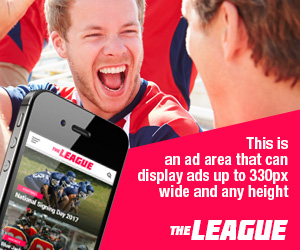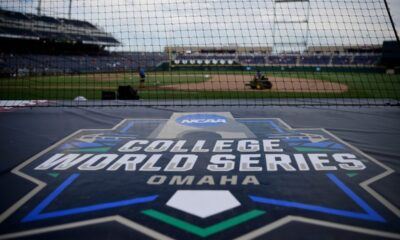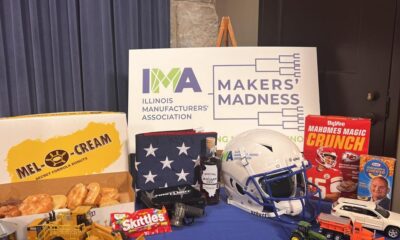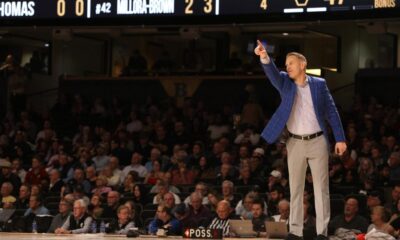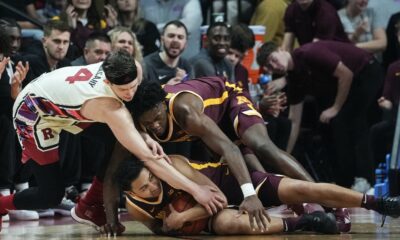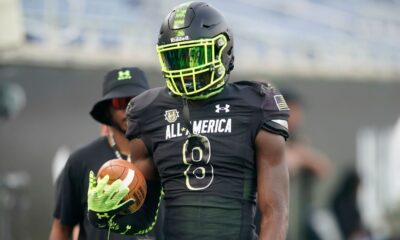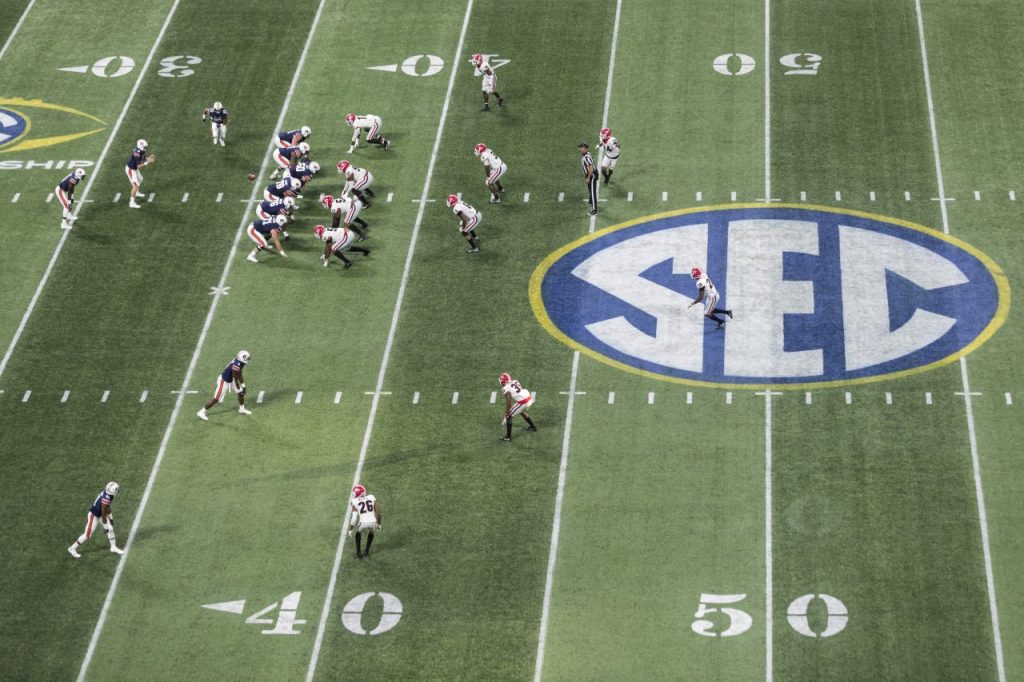
With the latest sign Johnson vs NCAAA federal proceeding arguing that college athletes should be paid at least as much as their work study classmates is worried about the establishment, the Southeastern Conference and a group of 13 educational groups have a third US appeal. The circuit that submitted the Amikas briefs to the court.They ask the Court of Appeals to overthrow Judge John Padova of the U.S. District Court Arbitrage It rejected the NCAA’s dismissal motion and upheld the approval of college athletes as employees under the fair. Labor Standard method.
Sportico I got two briefs submitted on June 7th.
Even if none of the 14 member universities of the conference are located in the area of Circuit 3 (Pennsylvania, New Jersey, Delaware, Virgin Islands), the SEC’s interest in this case is clear. These members are likely to be considered employers, and meetings are likely to be considered co-employers. Johnson I will succeed. Schools and conferences are afraid of new labor costs, especially when the SEC claims, when most universities have already lost money in athletics.
The American Council on Education, Public Universities and Land Licensed Universities Association, Catholic University Association, and Christian University Council are one of 13 education-related groups that submit joint briefs. They represent the leaders of many schools and academia and lobby on their behalf. Like the SEC, these associations are aware of the paradigm shift that occurs when college athletes are protected by minimum wages and overtime pay.
For clarity, Johnson Once it becomes widespread, it will not be possible to sign million-dollar contracts with college athletes or unite them.As Johnson Recently, Chief Attorney Paul McDonald Said Sportico and Exclusive video interviewFLSA approval means that athletes are paid for part-time jobs in the same way as their work study classmates.
McDonald will be paid $ 25 an hour to college athletes and will earn $ 500 a week and $ 2,000 a month during the four- or five-month season if the NCAA’s 20-hour weekly limit is reached. Assuming you have (less income during the off-season). ). Especially considering that the university offers students who have been studying for a long time and the average wage of FBS football coaches was $ 2.7 million in 2020. united states of america todayMcDonald’s ridicules concerns that FLSA employment may somehow cause the school to go bankrupt.
Still, the SEC argues that playing sports “should be classified as an extracurricular activity” rather than an employment activity, and that schools that pay athletes labor research wages are exorbitantly expensive. .. “The overwhelming majority of universities must subsidize inter-university sports from other sources of income,” said the SEC. If your school has 400 athletes and you pay $ 2,000 a month during the season, the cost will be $ 800,000 a month. This is a number that some schools may claim to be incompatible with the economy, but athletics often adds value to graduate funding. Admission and marketing.
Based on the same theme, the association outlines: “Of the 1,100 NCAA member bodies, only about 2% had an athletics sector that generated enough income to cover their 2019 operating costs. There was an overwhelming majority of NCAA’s 500,000 student athletes. Join a team with little or no revenue. ”The association also said that college sports are not“ business ”, but rather“ at their core. , A mosaic of programs that enrich students’ educational experience. “
Both briefs recognize an athlete as an employee, a “unified understanding” announced by courts, federal agencies, and legislative acts that playing college sports “should not be considered a job by an employee.” I warn you that it will be against. By that time, two other federal circuit courts (7th and 9th) had rejected the petition to recognize college athletes as FLSA employees.
The SEC has expressed concern about “circuit splitting” in which the Court of Appeals reach conflicting decisions on the same legal issue. In this case, college athletes will be FLSA employees on Circuit 3, but will be employees under the case law of Circuits 7 and 9 (12 states on the Midwest and West Coast, Guam and the Northern Mariana Islands). It is shown that it is not. Meanwhile, this question remains unanswered in nine other regional circuit courts, including those governing SEC schools.
The SEC also emphasizes the Field Operation Manual Handbook issued According to the US Department of Labor. The handbook is not a “law”, but it serves as an internal manual for employees of government agencies and is cited by the court as a compelling authority. The brief claim, which is a relevant part of the handbook, has been in place since “at least 1993”. They instructed that “university athletes who participate in activities that are generally accepted as extracurricular activities are not generally considered employees” and that participation in “in-university and inter-university athletics” is It does not mean to be interpreted as “work” in the context of FLSA.
Reflecting the same sentiment, educational groups claim: Johnson “It’s built on the false story of student athletes being exploited for profit by college.” As the association sees, Johnson The predominance will start what may be described as a parade of horrifying things.
“If universities are forced to pay student athletes, it is inevitable that many schools will simply eliminate athletic teams, and non-income sports teams are most likely to be at a loss. As a result, students. Will have much less opportunity to experience the benefits of inter-university athletics. “
The association also said, “Schools that have decided to continue to field their teams in revenue-generating sports will compete and maintain by offering higher salaries, including professional athletes who provide services. I will be forced to do it. ” To the highest bidder. Furthermore, in this world, “campus life and scholars will be retrofitted” and “education through athletics” will be transformed into a “professional sports business”.
McDonald’s says Sportico As he sees, the SEC and Educational Association briefs overlook the point of the appeal, misunderstand the law, and argue a strange perspective, ignoring modern reality.
“The only problem with appeals is the legal criteria for dismissal claims,” emphasizes Princeton University and NYU School of Law graduates. The NCAA emphasized case law in repelling previous efforts by college athletes to be recognized as employees under the FLSA.Vanskyk vs Peters) The Article 13 amendment abolished slavery and involuntary slavery, but shows that there is definitely a so-called “slavery loophole” for prisoners and college athletes. An important issue in the Third Circuit is whether Judge Padua applied the appropriate tests in dismissing the NCAA’s motion to dismiss.
McDonald’s, South park That episode satire The NCAA and its member schools as slave owners have found that the core defense against paying college athletes is a loophole in slavery. “The fact that NCAA (and now the SEC) actually relies on legal precedents regarding loopholes in Article 13 amended slavery to defend the exploitation of free student athlete workers is, in this case, The truth is stranger than fiction. “
McDonald’s also casts doubt on the SEC’s focus on the Ministry of Labor’s handbook. He states that the handbook is “irrelevant to the motion to dismiss the stage” and is “not particularly convincing.”McDonald’s US Supreme CourtJudgment Skidmore vs Swift,court Disrespect The importance of internal observations of government agencies when reached without a procedure involving an adversary. The court is not binding on these views (although the court cites the handbook as an authority).
McDonald’s also argues that even though the handbook is as credible as the NCAA and SEC suggest, references to non-employment activities are intended for student-run club sports rather than NCAA sports. Anyway, in the words of the handbook, non-employment activities “must be done primarily for the benefit of the participants as part of the educational opportunities the school offers to students,” he says. “The common sense is that NCAA sports aren’t done primarily for the educational benefit of the participants, but actually curb and hinder the pursuit of education,” McDonald’s said.
Finally, McDonald’s looks down on it “a little more paternalistic. [13 associations] Design to speak for student athletes, including depositions and affidavits.
Perhaps those athletes have a chance Johnson Advance.

